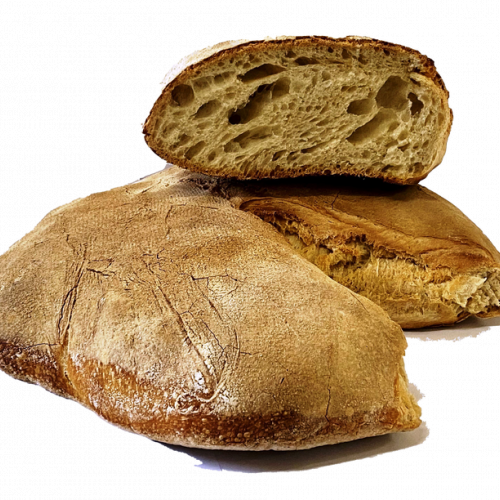
Description
The "Pane Cafone dei Camaldoli" is a very ancient type of bread, typical of Neapolitan cuisine, characterized by its elongated shape and its dough made from durum wheat flour, water, salt, and yeast, which has received the prestigious recognition of Traditional Italian Agri-food Products. The origin of Pane Cafone dei Camaldoli The name derives from the Camaldoli hill, located in the northwestern part of the city of Naples, famous for its scenic beauty and the Camaldoli Abbey, a Benedictine monastery founded in 1012 by Saint Romuald. The Camaldoli are a Catholic monastic order, whose name derives from the Latin "casa deserta," referring to the solitary and secluded life that the monks of this order choose to lead. The Camaldolese hermits live in small communities of monks located in isolated areas, where they can devote themselves to prayer, meditation, and manual labor. In their numerous monasteries and convents, spread across different parts of the world, the monks also dedicate themselves to welcoming pilgrims and assisting the poor, to whom they distribute the pane cafone they traditionally prepare. The Camaldoli hill is also an area of quality wine and olive oil production and hosts numerous farmhouses and agricultural businesses. Additionally, it is rich in trails and nature paths, suitable for walks and outdoor excursions. An extraordinary taste given by the centennial sourdough Camaldoli bread is very popular in Neapolitan cuisine and is often consumed accompanied by cured meats, cheeses, or other simple foods. There are different variations of Camaldoli bread, depending on the area where it is prepared and the personal tastes of the producers. Here we offer it with the most traditional dough, based on the sourdough from Panificio Morra, which, being linked to hundreds of years of tradition and several days of preparation, gives it an extraordinary taste.
